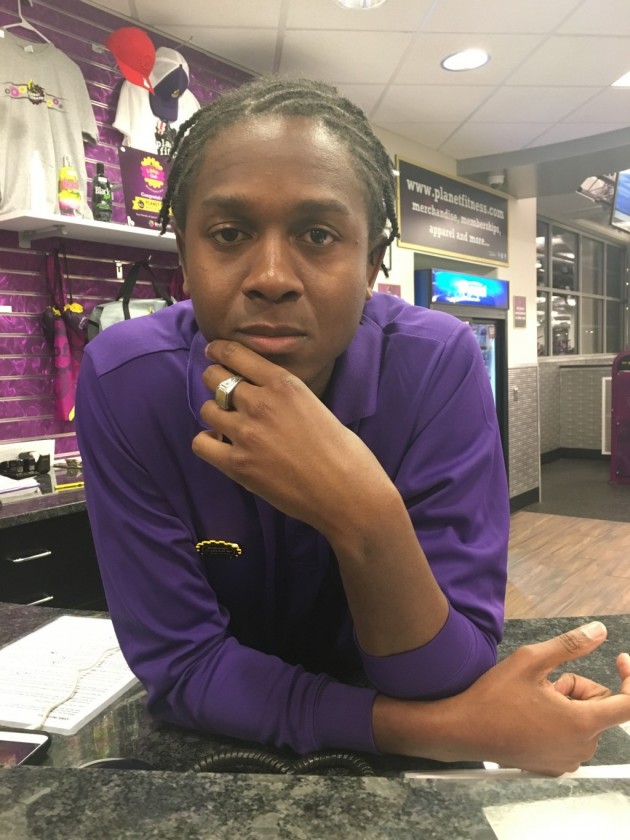Howard Challenges Yale in War of Words
Howard University News Service
NEW HAVEN, Conn. – In an era in which young people are regarded as a generation with nothing to say, eight students stepped to a podium last Saturday and dispelled this myth. In honor of the 100th- anniversary of the National Association for the Advancement of Colored People, Howard and Yale universities faced off in a highly anticipated debate in Yale’s Woolsey Hall.
The Connecticut State Conference of NAACP Branches coordinated this historic event, to “continue our focus on diversity and building racial harmony,” said president Scot X. Esdaile.
The debaters represented a link to bridge the gap between proactive generations of the past and new groundbreaking leaders. At the mark of 100 years of service from the NAACP, said Howard Professor Tianna Sousa-Johnson, “we cannot afford to have a missing link.”
Students from both universities approached the “The Great Debate” with the apprehension of making history. This was the first time that a Historically Black College or University debated an Ivy League school since the 1930s and the first parliamentary-style debate between the two.
The event at Yale symbolized the same type of triumph that occurred nearly eight decades ago when Wiley College of Marshall, Texas, defeated the University of Southern California in a national debate. It was named after the Golden Globe-nominated film “The Great Debaters,” which depicted the story of Wiley College taking on Harvard University, instead of USC.
“It was surreal,” said Howard debater Jared Smith. “Debating the most pressing issues of our time with one of the top institutions of the nation was very significant for me.”
Apprehension also built during the research process. “It was extremely hard to be proactive in building arguments that Yale would not be able to successfully counter,” explained DeAundre Bailey, researcher for the Bison team.
“The Great Debate” drew a crowd large enough to fill Woolsey Hall. The diverse audience of 2,700 welcomed the challengers and their ideas about education, financial crises and their impact on the United States and the global community.
The issue of education and its levels of qualitative value sparked flames early in the debate. Civilly, both sides of the house argued whether a higher education should be a constitutional right.
Arguing the affirmative, Yale gave an impressive opening argument. Prevalent arguments presented on this side included that a college education should, indeed, be a constitutional right because of the required education for high-level positions in the United States. These jobs, according to the Yale debaters, should not be unavailable to citizens solely because of financial and environmental barriers.
When challenged with the question of whether all education was equal, Yale debater Sabrina Ali responded, “which ever you prefer, Yale University or Howard University, is better than no education at all!”
The affirmative side was received well by the auditorium, but Howard University was not to be discounted. These debaters defended their opposing stance with arguments against promoting higher levels of education, or the easy access to said education, as the only means to attaining success.
Howard gave examples of successful figures such as Oprah Winfrey and President Barack Obama, who came from the same stifling environments and had the same financial barriers as individuals mentioned in the affirming argument.
Angela Porter included the perspective of Gregory Carr, Ph.D., a renowned Howard professor of African American history, in the argument. “Dr. Carr would suggest that our education system is flawed and perpetuates the discrepancies in our society. Thus, we should reform the system before we make the education system a constitutional right.”
With poise, professionalism, wit and airtight rebuttals, the debaters tossed this issue back and forth until the subject wore out its welcome on the stage. The moderator, Hilary O. Shelton, director of the NAACP Washington bureau, declared a clear and concise “Time!” as the tension was released in the room.
Howard spectators, many of whom spent seven hours on a bus from Washington to New Haven, Conn., were excitedly nervous, sitting on the edges of their seats as the debate continued. On the issue of predatory lenders being included in the financial bailout, Allen Reynolds of Howard argued, “It’s like taking my lunch money, and it doesn’t make any sense!”
Serving as an exhibition rather than a competition, the debate concluded with two victories and trophies for each side.
“Next year, it will be a true debate,” said Jannette L. Dates, Ph.D., dean of the John H. Johnson School of Communications at Howard. “Events like these will revitalize the idea of debating and resurrect it to a larger extent.” Despite her students’ apprehension leading up to the momentous occasion, Dates said, “I knew that they would do just fine.”
Howard University debaters were elated to be part of the experience. Holding the trophy after its presentation meant more to them than a mere scholastic victory.
“So many legacies are going on in this event,” Porter explained. “This is about more than Howard vs. Ivy Leagues. This is about showing people that didn’t think we could do it – that we actually can.”

